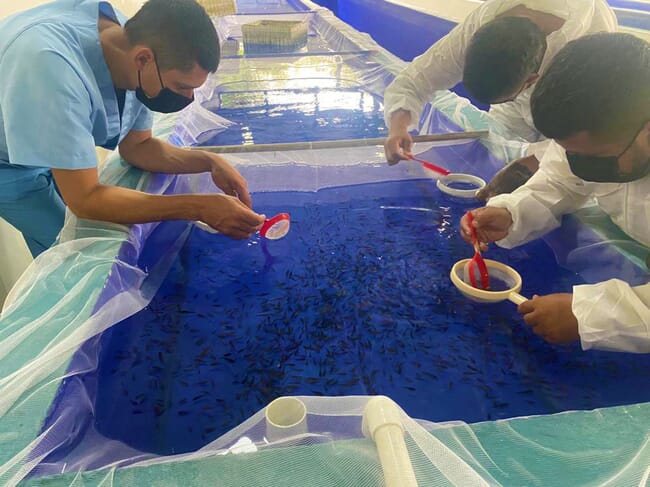
The fish will be grown to maturity and are due to start to produce their own offspring in Q3 © GenoMar
The fish were imported from the company’s breeding centre in the Philippines and will serve as the parent stock for commercial fingerlings for Colombian farmers. The first deliveries are expected in the third quarter of 2023.
The milestone follows a five-year approval process involving the regulatory authority in Colombia – the Instituto Colombiano Agropecuario (ICA). It also follows the establishment of GenoMar Genetics Colombia – a joint venture with Agroavícola Sanmarino, a Colombian poultry genetics distribution company belonging to the Italcol Group and GenoMar Genetics Group – in 2021.
“I am extremely satisfied with reaching this milestone, which takes us one step further into our effort of expanding our presence in the major tilapia markets in the American continent. I want to congratulate our teams and partners in the Philippines and Colombia for having persevered and never given up on this complex process,” said Alejandro Tola Alvarez, CEO of GenoMar Genetics Group, in a press release.
Upon arrival in Colombia, the ICA took samples of the fish to check for the absence of disease-causing agents. After going through the 30-day quarantine and customs clearance procedures in Bogotá, the fish were transported to the official approved quarantine farm that the company has in Flandes, Tolima province. During the quarantine period, the ICA inspected the facility, water quality and health status of the fish. The fish were officially released on 14 February.
“We have a lot of interest and expectation in the market right now. I believe that the 30-year breeding work on the GenoMar strain will have a positive impact on improving tilapia production in Colombia. We will start R&D trials very soon,” said Martin Cordero Ordóñez, general manager of GenoMar Genetics Colombia.
GenoMar says that it has a clear strategy of operating close to their customers by owning their own distribution centres. The company is also working to have the relevant approvals for importing genetic material from its new breeding center in Brazil. This will open opportunities to import new genetic lines in the future, as well as to improve welfare and reduce shipping costs.


